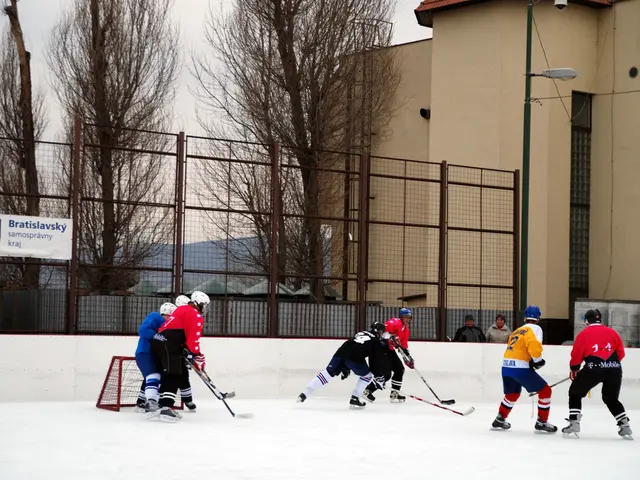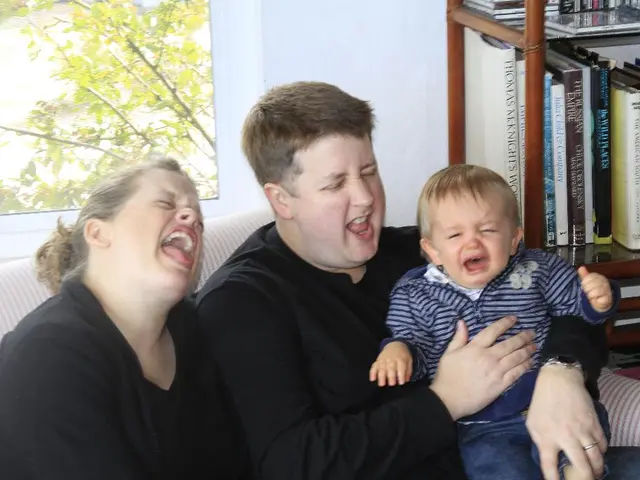Reminiscent Tunes from Tbilisi's Courtyards: Unraveling the Cultural Echo of Dasta Avala's Neglected Songs
Verandah of Times Past: Dasta Avala's Luminous Revival
Step into Backstage76, and you'll stumble upon a portal to the past, as this snug venue magically morphs into an old-world verandah in Sololaki, a twilight window in Avlabari, or a moonlit courtyard in Ortachala. On Wednesday nights, this transformation happens, thanks to the enchanting melodies woven by Dasta Avala, an ensemble born from the vision of French musician Zoé Perret.
A Melodious Gathering of Ghosts
The name Dasta Avala speaks volumes about their mission. "Dasta" translates to a touch, a hand, a gathering, while "Avala" means both falling and arriving. This group is about assembling the echoes of what once fell into silence, a gentle landing on the musical landscape of Tbilisi.
Zoé Perret, with her years of immersion in Georgia, channels a raw intimacy into her interpretations, allowing the music to breathe, rather than dominating it. Her vocals - hushed, genuine, and at times intentionally fragile - serve as a tender remembrance, rather than a modern reinterpretation, of these haunting tunes.
David Khositashvili's guitar becomes more than mere accompaniment under Zoé's violin-infused serenades, acting as rhythmic stitchwork, weaving intricate patterns and gentle counterpoint. Ivane Mkrtchyan's duduk, with its rich microtonal melancholy, turns the air into a dense, almost palpable, fog—a sonic representation of memory. Nazi Chavchavadze's doli and daira provide a pulsating life-beat to the fog, simulating the sound of footsteps, doors creaking, and women dancing in their comfortable slippers.
An Ode to a City of Contrasts
Their performance repertoire transcends the predictable, steering clear of touristic clichés. These are the overlooked treasures, the side-Bs of the city's musical history, whispered in kitchens, lost in translation, or resurrected from the fragments of archival recordings and oral testimonies. Many of these songs have no clear origins, and some seamlessly shift between languages mid-verse. The musical tension evokes the essence of Old Tbilisi, a city nestled in wearisome harmony, a city that never quite resolved its beauty, always humming with the gentle clash of its contrasts.
Dasta Avala's multicultural approach is more than skin deep. Instead of performing separate "ethnic" songs in sequence, they elegantly weave the various lineages together, allowing the similarities to clash and the differences to harmonize. Their work invites a subtle political question: What does it mean to remember a city through its most fragile voices? Through songs sung by minorities, by women, by lost souls? There is an ethos in their work, a commitment to avoiding monumentalization and embracing intimacy instead.
Dasta Avala is not caught in folkloric nostalgia. They do not merely reconstruct; they resurrect. And in doing so, they challenge us to reconsider the meaning of remembering a city through its forgotten voices. Their performances are invitations to an elegant and thought-provoking rediscovery of Tbilisi and its polyphonic soul.
By Ivan Nechaev
Backstage76Dasta AvalaIvan Nechaev
Enrichment Insights:Dasta Avala is a multilingual musical ensemble comprising French musician Zoé Perret, David Khositashvili, Ivane Mkrtchyan, and Nazi Chavchavadze. They are revered for their unique interpretation of Tbilisi's rich musical history, with a particular focus on preserving the essence of forgotten songs from the city. Their audacious approach merges various linguistic and cultural influences, embodying the city's multicultural past.
Recently, Dasta Avala collaborated with Tina, Anushka Chkheidze, Elene Gogodze, Aleksandre Kharanauli, and Nodar Nozadze in a concert titled "Holy Oscillation" in Berlin. The entry price was 15 GEL, but no definitive future performances have been announced yet, despite the ensemble's continued involvement in international cultural events. Their work revolves around reinterpreting traditional melodies through a contemporary lens, all while honoring Tbilisi's historical sounds.
- The haunting melodies on Wednesday nights at Backstage76 in Tbilisi, crafted by Dasta Avala, fill the air with a dense fog, humming with the gentle clash of the city's contrasts, echoing the wearisome harmony of Old Tbilisi.
- As Zoé Perret, Ivane Mkrtchyan, David Khositashvili, and Nazi Chavchavadze of Dasta Avala enchant the audience with their enchanting performances, they subtly weave together the various cultural and linguistic influences in Tbilisi's music, breathing new life into the forgotten voices and stories of the city.
- Dasta Avala, led by Zoé Perret, with their unique performances at the Backstage76, gracefully unveil the forgotten treasures of Tbilisi's music, transcending predictable clichés, contradicting the prevalent touristic views with their hauntingly beautiful renditions of populated kitchen whispers and resurrected archival recordings and testimonies, weaving an elegant and thought-provoking portrayal of Tbilisi's polyphonic soul.













